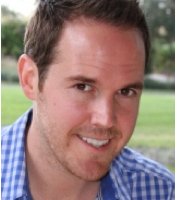There’s a scientific discovery waiting out there for someone who’s ambitious enough to look outside the box.
This scientific discovery is much bigger than Einstein’s theory of relativity…the question is, “What make us conscious?”
I happen to believe its spiritual—but I’m going to work on this answer from a perspective that has nothing to do with spiritually.
A prominent researcher of consciousness, named Daniel C. Dennet, explains in his book Consciousness Explained:
“Human consciousness is just about the last surviving mystery. A mystery is a phenomenon that people don’t know how to think about—yet. There have been other great mysteries: the mystery of the origin of the universe, the mystery of life and reproduction, the mystery of the design to be found in nature, the mysteries of time, space and gravity. These were not just areas of scientific ignorance but of utter bafflement and wonder.
We do not yet have all the answers to any of the questions of cosmology and particle physics, molecular genetics and evolutionary theory but we do know how to think about them…with consciousness, however, we are still in a terrible muddle. Consciousness stands alone today as a topic that often leaves even the most sophisticated thinkers tongue-tied and confused. And, as with all of the earlier mysteries, there are many who insist—and hope—that there will never be a demystification of consciousness.”
There’s a major problem, in science and in life; as human beings, we tend to only look for things that we have knowledge of.
For example, if we lose our cell phone, we look only in the areas we think we might have been.
But, anyone who has lost something knows that our minds are faulty in that sense; we sometimes find things we lost in areas that we never previously thought to look.
As a neuroscientist named John Medina wrote:
“We do not see with our eyes. We see with our brains. The evidence lies with a group of 54 wine aficionados. Stay with me here. To the untrained ear, the vocabularies that wine tasters use to describe wine may seem pretentious, more reminiscent of a psychologist describing a patient. (“Aggressive complexity, with just a subtle hint of shyness” is something I once heard at a wine-tasting soirée to which I was mistakenly invited—and from which, once picked off the floor rolling with laughter, I was hurriedly escorted out the door).
These words are taken very seriously by the professionals, however. A specific vocabulary exists for white wines and a specific vocabulary for red wines, and the two are never supposed to cross. Given how individually we each perceive any sense, I have often wondered how objective these tasters actually could be. So, apparently, did a group of brain researchers in Europe. They descended upon ground zero of the wine-tasting world, the University of Bordeaux, and asked: “What if we dropped odorless, tasteless red dye into white wines, then gave it to 54 wine-tasting professionals?” With only visual sense altered, how would the enologists now describe their wine? Would their delicate palates see through the ruse, or would their noses be fooled? The answer is “their noses would be fooled.” When the wine tasters encountered the altered whites, every one of them employed the vocabulary of the reds. The visual inputs seemed to trump their other highly trained senses.”
In a simple sense, our beliefs about how the world is essentially blinds us. So, there are a bunch of neuroscientists looking into every area of the brain, trying to figure out what the mind really is.
They can’t yet figure the question out, so they sweep it under the carpet, coming back to it on another day.
If you happen to be messy and you have guest coming over, you tend to sweep anything that may make you appear to be unclean under the bed or couch; this is what neuroscientists are doing when the question of ‘what makes us conscious’ is brought up.
In a sense, it’s a somewhat brilliant strategy; if you can’t answer a question directly, why not answer back with an open-ended question, that keeps the debate alive?
For example, I wrote about this topic earlier and someone (who is intelligent) wrote this comment, “Tackling a huge field like “Consciousness: What Is It?” is quite ambitious, if not a tad arrogant. You’ve made a nice start here.”
My argument is that is absolutely impossible to understand consciousness without understanding energy.
When I speak of energy, I refer to what Traditional Chinese Medicine calls Qi. This single word, Qi, has led to so many esoteric conclusions, that it’s something scientists don’t even want to think about. However, it has been part of the healthcare system of Tibet, India and China; each of these cultures uses a different name to describe this energy—in India, for example, it’s called Prana.
Here’s the major problem: it exists but Western science can’t measure it yet.
If I where a neuroscientist, I would look, in every way possible, to find a way to measure the subtle energies in the body…because if they don’t, neuroscience will be looking for consciousness…for all of eternity.
~
Editor: Bryonie Wise
Like elephant enlightened society on Facebook.










Read 3 comments and reply